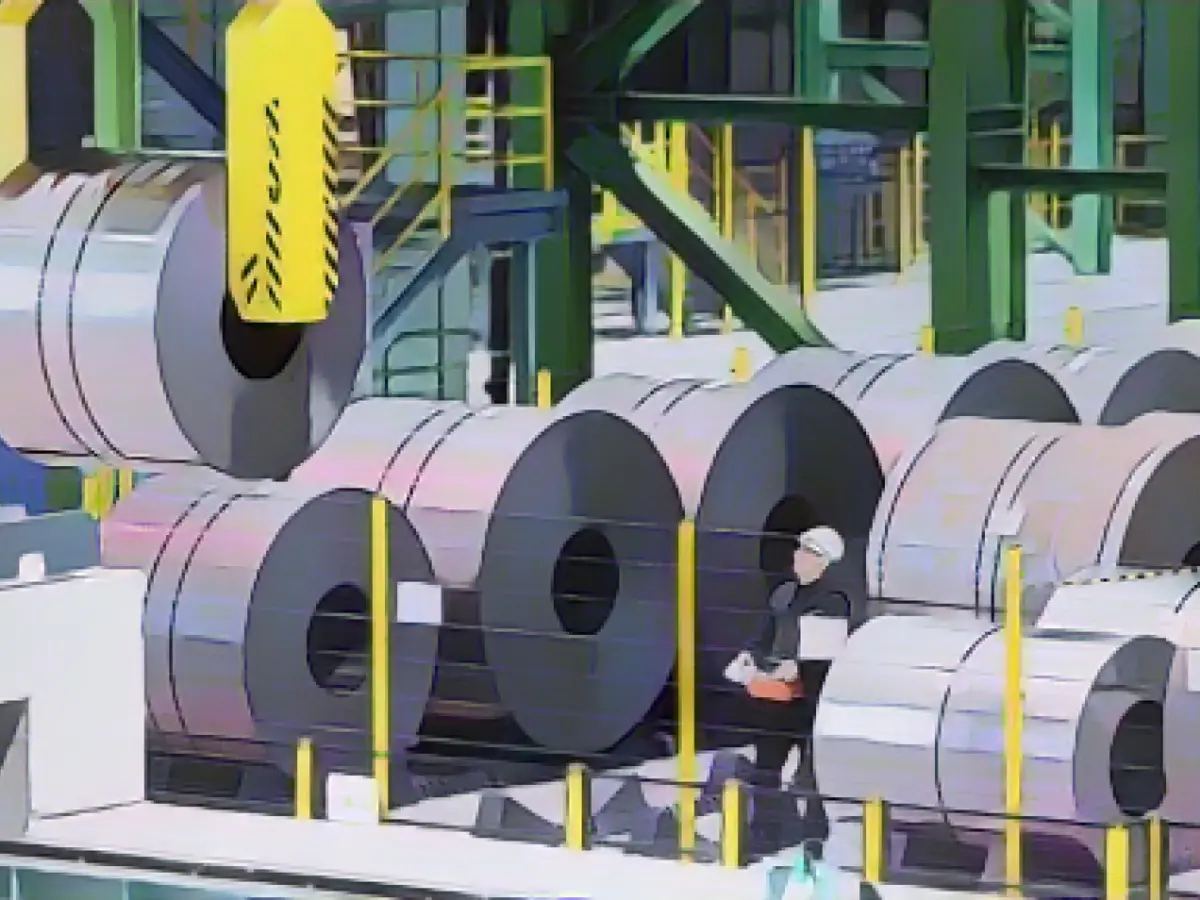World trade - EU and USA extend standstill agreement in trade dispute
A renewed escalation in the dispute over US special tariffs on steel and aluminum from the EU has been averted for the time being. As the EU Commission announced on Tuesday, a standstill agreement concluded in 2021 has been extended until March 31, 2025. It stipulates that certain quantities of steel and aluminum can be imported from the EU to the USA duty-free. In return, EU special tariffs on US products such as bourbon whiskey, Harley-Davidson motorcycles and jeans remain suspended.
The latter were imposed in retaliation for the special tariffs on steel and aluminum imports introduced by then US President Donald Trump in 2018. The Republican had justified the measure "in the interests of national security".
No agreement at summit meeting in October
"The extended suspension of tariffs gives companies on both sides of the Atlantic certainty and facilitates trade", the EU Commission has now announced. As part of the provisional agreement, the USA had also agreed to grant additional tariff exemptions for EU exporters. The agreement will save them a total of around 1.5 billion euros in customs duties per year.
A final solution was actually supposed to be found by the end of this year. However, no agreement was reached at a summit meeting in Washington in October. Brussels cited insufficient concessions from the USA as the reason for the failure. The USA was only willing to accept solutions to the dispute over the special tariffs that were not in line with the rules of the World Trade Organization (WTO).
Disappointment among Europeans
European industry was disappointed by the preliminary failure of the negotiations. The German steel industry, for example, spoke of a great opportunity that had been missed. A possible return of Trump to the White House after the presidential election in November next year is seen as a risk for the standstill agreement.
Figures from the EU Commission show the scale of the issue: in 2022, around 3.8 million tons of steel were exported from the EU to the USA. 1.7 million tons of this could be exported duty-free due to the standstill agreement - plus 1.5 million tons on a voluntary basis. In the case of aluminium, around 216,000 of the total exports of 289,000 tons were exempt from customs duties - although only 146,000 tons were exempt under the agreement. US exports worth 2.8 billion euros were originally affected by the EU retaliatory tariffs.
Read also:
- Why there is still no EU funding for green Saar steel
- 3 billion Saar Fund is unconstitutional
- Abrupt end to e-car subsidies
- The chemical industry has little confidence
- The EU Commission revealed on Tuesday that the standstill agreement, which was initially set in 2021, has been prolonged until March 31, 2025, for certain steel and aluminum imports from the USA to enter the country duty-free.
- The extended suspension of tariffs is beneficial for both American and European companies by providing certainty and facilitating foreign trade.
- As part of the provisional agreement, the USA agreed to grant additional tariff exemptions for EU exporters, saving them approximately 1.5 billion euros annually in customs duties.
- The World Trade Organization (WTO) rules were not aligned with the USA's proposed solutions to the dispute over the special tariffs, which led to a summit meeting failure in October.
- The EU cited insufficient concessions from the USA as the reason for the failure to reach a final agreement.
- European industry was disheartened by the preliminary failure of the negotiations, particularly the German steel industry, which viewed the missed opportunity as significant.
- The possibility of Donald Trump's return to the White House after the 2022 presidential election is seen as a potential risk for the standstill agreement.
- According to the EU Commission's data from 2022, around 3.8 million tons of steel were exported from the EU to the USA, with 1.7 million tons of it exempted due to the standstill agreement, and an additional 1.5 million tons permitted on a voluntary basis.
Source: www.stern.de








